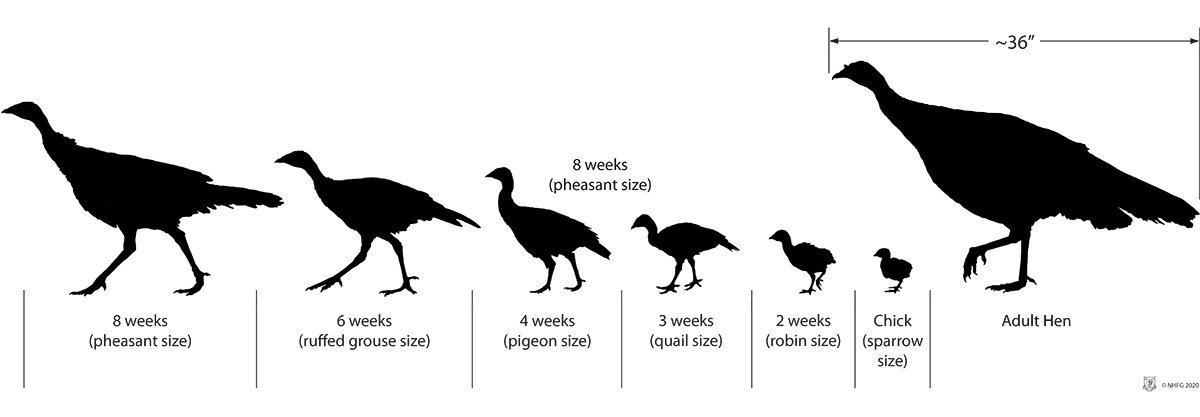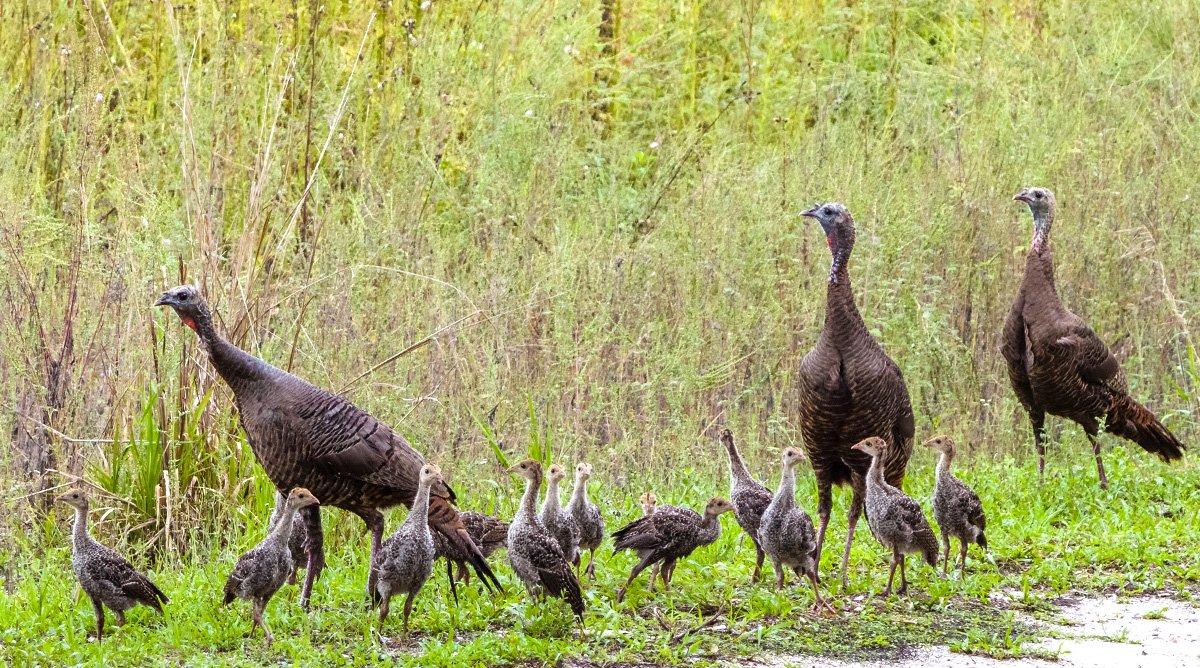Official counts aren't in yet, but brood surveys are underway across the country
The quail-sized poult, likely 3 weeks old or so, darted out into the road from where it had been bugging, followed by a lanky brood hen. While spotting just a single young bird indicates a tough run for that brood, one sighting is just that — no occasion for panic as far as Maine's entire hatch goes.
Road warrior that I am, I stopped traffic and wished both the best. Life is tough on a wild turkey.
Elsewhere in New England, several good buddies in my turkey circle recently reported a New Hampshire group of 50 poults with seven adult hens (that's no typo). Another buddy in Massachusetts believes a hen on his property has re-nested and is still sitting (not uncommon around here).
Over in Ohio on the Midwest's easternmost edge, another hardcore turkey guy in my gang saw a brood hen with seven poults the size of golf balls on July 12 (likely just hatched; see the chart below).
What are you seeing out there?
State Roles in Brood Counts
To help monitor and assess turkey populations for management purposes, state wildlife agencies conduct brood surveys all summer.
For example, Florida, New Hampshire, and Indiana do this from June through August. Headcounts for both adult hens and young of the year are made a bit later in Nebraska — July and August, specifically. And not until August over in Vermont.
Most of this hardcore hatch data — the kind with drilled-down statistics — will be compiled later as we move into early fall. Communities of citizen birdwatchers also count birds.
As we do. Turkey nuts like us all around the country are rubbernecking cut fields, looking for hens with poults, and yes, hard-stopping on back roads when mama carefully leads those little ones across.
Why Count Turkeys?
In answer to the question, the state of Indiana puts it simply:
Brood surveys provide useful estimates about annual production by wild turkey hens and the survival of poults (young turkeys) through the summer brood-rearing period. Summer brood survival is generally the primary factor influencing wild turkey population trends. Information on summer brood survival is essential for sound turkey management.
"To help monitor and assess turkey populations for management purposes, state wildlife agencies conduct brood surveys all summer."
And Florida Fish and Wildlife Conservation Commission officials agree:
Florida's annual summer wild turkey survey is part of a larger regional study designed to provide more insight into the distribution and abundance of wild turkeys. The information, combined with harvest data, lets FWC biologists scientifically manage the wild turkey population — ensuring we have a thriving population now and in the future.
We can, and should, play an important role in telling officials what we see now.
How You Can Help
We turkey hunters can be an impatient bunch, wanting quick results. Prone to snap judgments — like deciding the season will be a bust after seeing just one poult with a brood hen — our own personal experiences are woefully limited case studies. The truth is this: Some hens have success, while others don't fare so well.
Science is more resolute. Gathering such data takes time. Our generalized good hatch/bad hatch assertions as enthusiastic turkey hunters are obviously limited, but, yeah, we make these each summer. I do. You do. We can't help it.
Enter the citizen brood survey, which supplements the scientific work biologists do in the field.
As an ongoing management effort, states have installed a volunteer-based system for accumulating data of brooding success. In short, they ask interested residents to fill out surveys. For cash-strapped wildlife agencies, this is surely cost effective, somewhat efficient, and it connects the conservation effort with the public — and in the process, educates participants about wild turkeys.
Nope, it's not perfect. And some of those sightings will be of the human-habituated, backyard-bird kind. But still, they are indicators of hatch production.
Pencils Ready?
Okay, pop quiz.
Does your state conduct an annual summer survey of turkeys? Don't know? Have a look when you get a second. If so, get involved if you can. And include the kids. There are worse ways to pass a summer as we wait on fall hunts, and this effort contributes to the study of the gamebird we all love. And you do want to help out, right?
[Read more: Are Turkey Seasons Opening Too Soon?]








